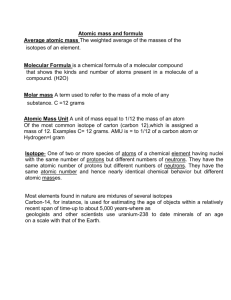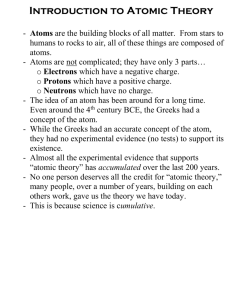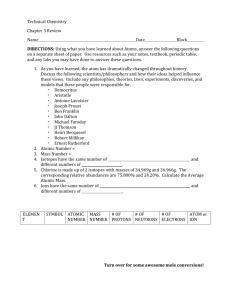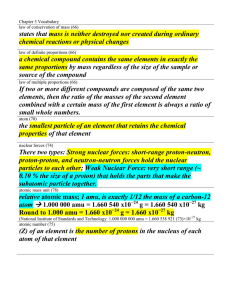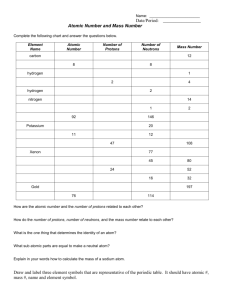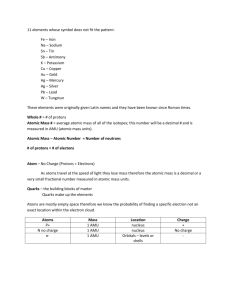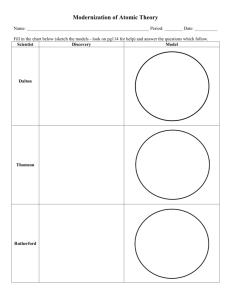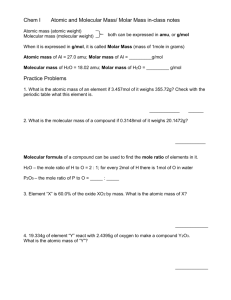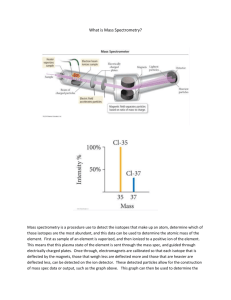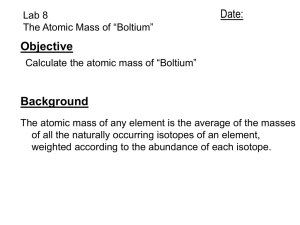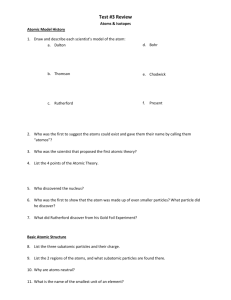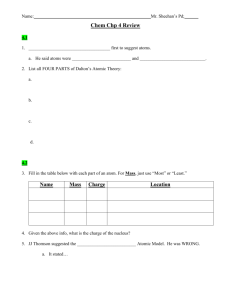Test 2 Review/SG – Atomic Theory
advertisement
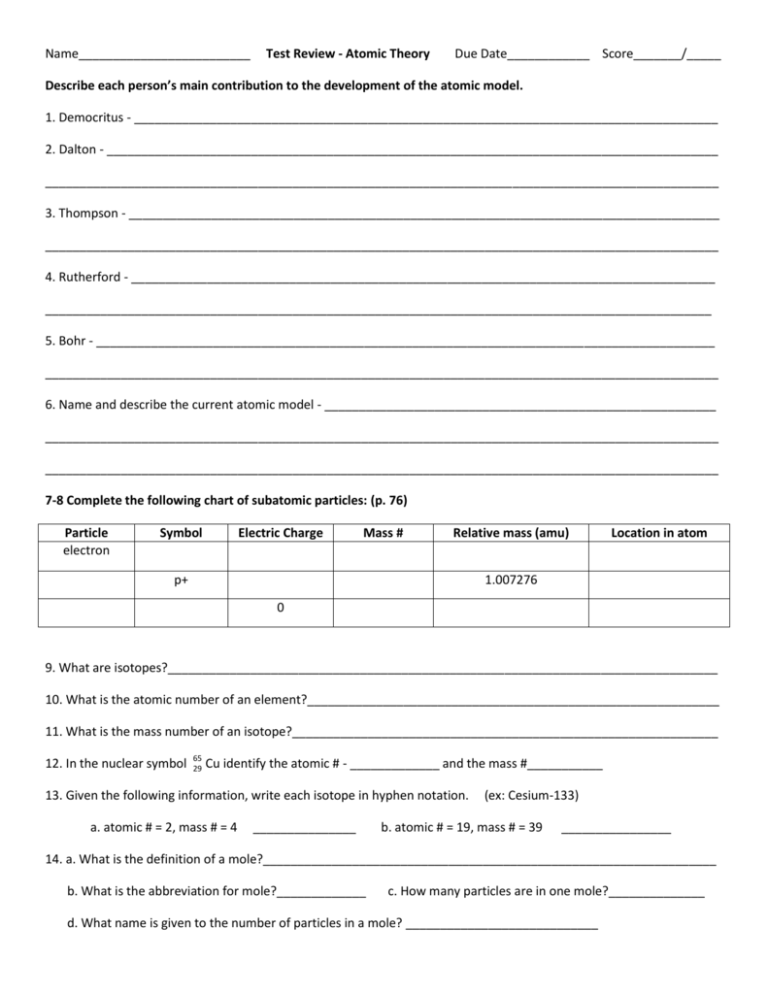
Name_________________________ Test Review - Atomic Theory Due Date____________ Score_______/_____ Describe each person’s main contribution to the development of the atomic model. 1. Democritus - _____________________________________________________________________________________ 2. Dalton - _________________________________________________________________________________________ __________________________________________________________________________________________________ 3. Thompson - ______________________________________________________________________________________ __________________________________________________________________________________________________ 4. Rutherford - _____________________________________________________________________________________ _________________________________________________________________________________________________ 5. Bohr - __________________________________________________________________________________________ __________________________________________________________________________________________________ 6. Name and describe the current atomic model - _________________________________________________________ __________________________________________________________________________________________________ __________________________________________________________________________________________________ 7-8 Complete the following chart of subatomic particles: (p. 76) Particle electron Symbol Electric Charge Mass # Relative mass (amu) p+ Location in atom 1.007276 0 9. What are isotopes?________________________________________________________________________________ 10. What is the atomic number of an element?____________________________________________________________ 11. What is the mass number of an isotope?______________________________________________________________ 12. In the nuclear symbol 65 29 Cu identify the atomic # - _____________ and the mass #___________ 13. Given the following information, write each isotope in hyphen notation. a. atomic # = 2, mass # = 4 _______________ (ex: Cesium-133) b. atomic # = 19, mass # = 39 ________________ 14. a. What is the definition of a mole?__________________________________________________________________ b. What is the abbreviation for mole?_____________ c. How many particles are in one mole?______________ d. What name is given to the number of particles in a mole? ____________________________ 15. a. What is the molar mass of an element?_____________________________________________________________ b. To two decimal places, write the molar masses (with units): CH2CH2 - ______________ neon - _______________ iron - _______________ Uranium - ______________ 16. What is the mass in grams of each of the following: a. 1.00 mol Li ______________ b. 1.00 molar mass Ca ______________ c. 6.022 x 10 23 atoms of Ag ____________ 17. How many moles of atoms are there in each of the following: a. 6.022 x 1023 atoms of Ne _________________ b. 3.25 x 105 g of Pb ___________________ 18. Calculate the average atomic mass of argon to two decimal places, given the following relative atomic masses and abundances of each of the isotopes. Ar-36 (35.97 amu; 0.337%) Ar-38 (37.96 amu; 0.063%) Ar-40 (39.96% amu; 99.600%) 19. Determine the mass in grams of each of the following: Show your work! CIRCLE YOUR ANSWER! a. 3.00 mol Al b. 4.86 x 1024 molecules of CH4 20. How many atoms are in each of the following: Show all work! CIRCLE YOUR ANSWER! a. 5.5 mol of H2O b. 3.4 g of Nitrogen Fill in the chart with the missing information. 21-23. Isotope Si-28 Si-29 Si-30 # of protons 24. Which atom has more neutrons, potassium-40 # of electrons # of neutrons or argon-40?___________________________ 25. Write the nuclear symbol of an atom containing 69 neutrons and 50 protons. (refer to notes.) HONORS Supplement: 26. Organizing Ideas Using two chemical compounds as an example, describe the difference between the law of definite proportions and the law of multiple proportions. (EXPLAIN your answer in complete sentence form.) 27. Extended Response A student believed that she had discovered a new element and named it mythium. Analysis found it contained two isotopes. The composition of the isotopes was 19.9% at atomic mass 10.013 and 80.1% of atomic mass 11.009. What is the average atomic mass, and do you think mythium was a new element? (Show work and EXPLAIN your answer in complete sentence form.)
